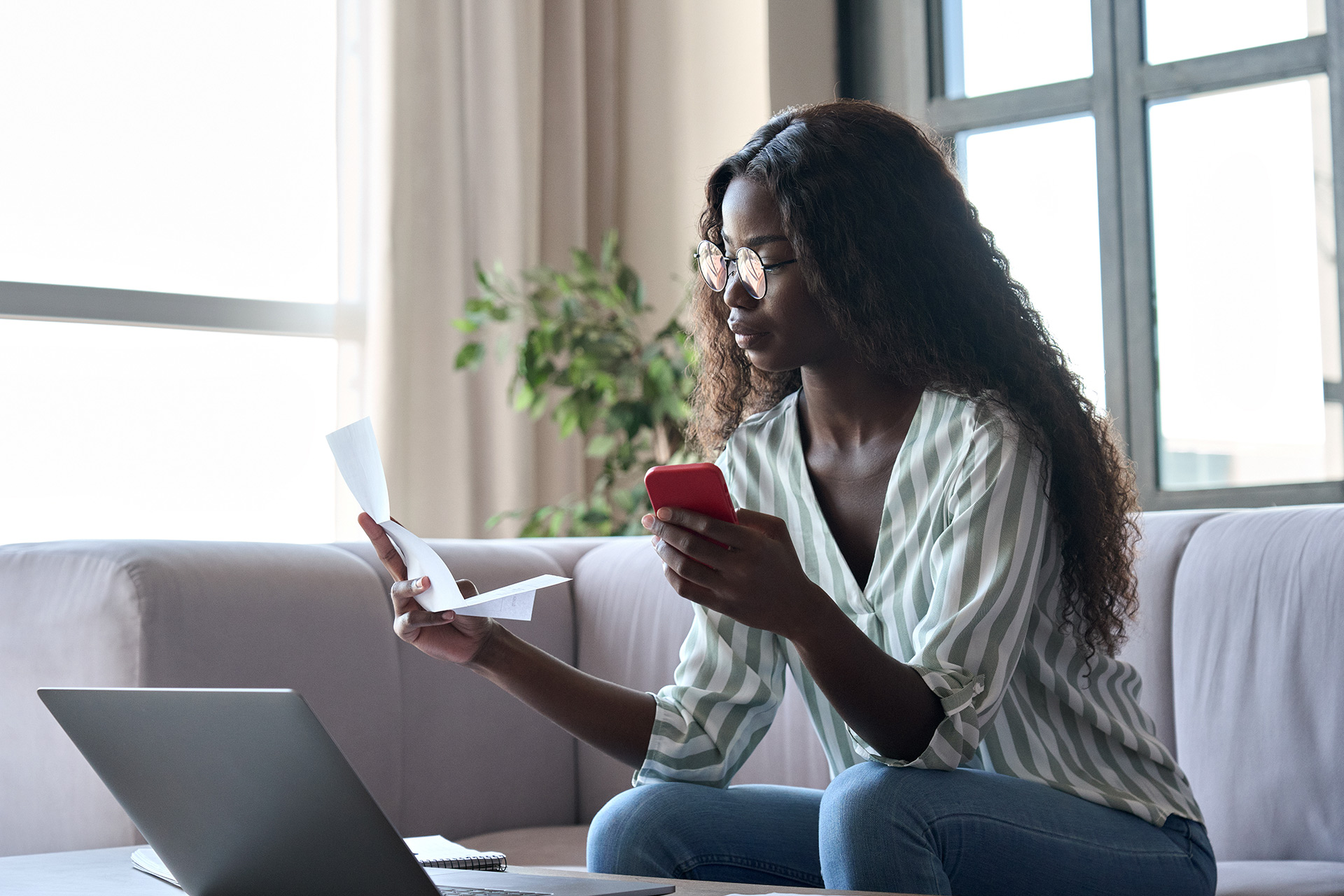Five tricks to not hurt our financial well-being


The difference between overspending and using money appropriately might be in the little things. Whether we’re spending money online, at the supermarket, at a restaurant... we can always adopt better consumption habits to protect our finances.
It’s a common misconception that financial well-being means having money to fulfil payment obligations (e.g. credit card bills, rent, mortgage instalments, loans, etc.), cover basic needs (e.g. food or transport) or simply indulge. But it’s not really what we have but how we manage it to ensure a healthy balance between what we earn, what we spend, what we save and what we owe.
Just as physical health is influenced by specific things such as lifestyle, nutrition, and genetics, so is financial well-being: depending on our salary, expenses and our personal finances, we may (or may not) need to take measures to keep our finances in good health.
Personal finance isn’t the same for everyone, and there isn’t a single formula to manage it correctly. However, there are (often) financial habits or biases that could influence what we choose to do with our money. Let’s meet Diana to learn some tricks to keep your spending habits from hurting your financial health.
1. Split or lower your expenses whenever you can
Diana is young and likes to spend her free time taking trips, going to new restaurants and reading. A few months ago, she was checking her bank statement and notices she was spending more than she could afford on petrol for her car, hotel and restaurant bookings and purchases at book stores. Therefore, she thought about how she could reduce her spending.
She found the answer in the collaborative economy, a business model based on sharing products and services, such as books, transport and lodging. Now, she travels with others who are going to the same destination to split the cost of petrol and books accommodation on house sharing apps.
She also found out she can find the books she likes on second-hand markets and in digital format at a much lower cost. There are also more platforms with plans to share books with friends and family.
2. Mind your online habits
Online shops are an easy and quick option to buy what we need without leaving home; however, they can give Diana the temptation to spend more money with just a click.
She had many e-commerce apps on her smartphone with her bank card info. So when she saw something she liked, she only needed to click and her purchase would instantly be made. Diana did this often until she realized her account balance was getting smaller and smaller.
So she decided to try a simple but effective trick: removing her bank card info from all apps and online shops. In days, she saw she was better at control her impulses because she didn’t always have her card around to enter it and could think if she really needed something while she looked for it.
She also started to notice what the things she liked cost to figure out if she could save money if they were discounted or on sale. All in all, Diana started spending money less impulsively and with informed decisions.

3. Get time on your side to not spend money
When Diana got paid, she liked to treat herself. Sometimes, she’d go to a new restaurant, treat her best friends to drinks or buy electronics. What she spent seemed much smaller than her account balance. However, in a few days, she wast paying her bills and rent and shopping at the supermarket, and realized that she might be spending the money she earned too quickly.
To avoid making the same mistake, she set a limit for monthly leisure activities. She also began holding off on spending her money for a specific timeframe. She tried out the 24-48 hour and 7-day rules of not spending money.
This trick has variations to instil discipline to resist impulse buying. Still, putting it in practice depends on personal circumstances and financial need.
4. Do it yourself (DIY)
“Do It Yourself” (DIY) is a trend from the US that went worldwide via the Internet. There are things for all skill levels and interests, whether you’re an expert or a beginner learning to do things with video tutorials.
Now, to make her son’s costumes for school plays, Diana is using old clothes and buying only the extra materials she needs. Reusing things also helps take us care of the planet by cutting down the natural resources we consume.
She’s also saving at the supermarket: she used to choose more expensive ready-to-eat, peeled and shopped fruit; but now she buys whole pieces of fruit and prepares them herself. She does the same with other foods (greens, meat, etc.); it’s an easy trick to use.
5. Plan how to use your money
Diana also noticed that, because she shopped at the supermarket for the things she used at home when they finished, she made several trips during the week. Every purchase she made included not only what she needed, but also biscuits on sale, a fizzy drink she fancied and other extra items. She wasn’t saving time or money on what was actually necessary.
She tried one of the most common and effective tricks in the book to keep her household finances in order: sticking to a shopping list. By planning what she was going to spend money on before she left her home, she didn't buy things that she didn't need or caused her to overspend at the supermarket.
Making a budget every month with household expenses is also an effective way to manage money and know exactly what you have on hand, your spending and what you can save.







